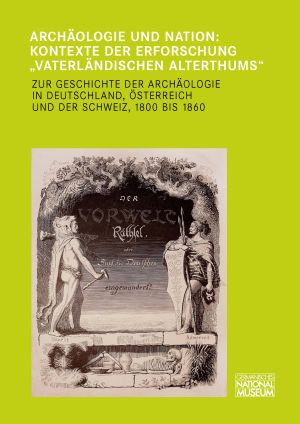How to Cite
License (Chapter)

This work is licensed under a Creative Commons Attribution-NonCommercial-NoDerivatives 4.0 International License.
Published
Vaterländische Altertumskunde
Sammeln und Bewahren in einer Umbruchszeit
National Antiquarianism: Collecting and Saving in a Time of Change
In the first half of the 19th century, interest in domestic antiquities (vaterländische Altertümer) flourished in the German lands as never before. Highly motivated scholars collected and documented the surviving traces, both linguistic and material, of pagan prehistory and the Christian Middle Ages, in an effort to save them from oblivion and destruction. Elaborate classifications were developed for ordering the many types of remains. To present as comprehensive a picture of Germanic history as possible, scholars pooled their individual efforts in newly founded antiquarian societies or clubs. Taking an early program by Friedrich David Gräter, a philologist from Schwäbisch Hall, as an example, the paper shows how interwoven the philological, historical, and archaeological research interests of these antiquarians were. The history of archaeology needs this contemporary context. How were the terms Alterthum (antiquity) and the Vaterland (fatherland) understood by those involved at the time? Who were these scholars, and why were they so rigorously intent on understanding the history of the ‘Vaterland’? The idea that burgeoning interest into the fatherland’s antiquities was the result of a new national consciousness, born of the experience of foreign French rule and the Wars of Liberation, is a legitimizing nationalistic topos. On closer inspection, the loss of tradition and cultural properties that accompanied the collapse of the Holy Roman Empire in 1806 offers a fuller explanation for this phenomenon than the myth of the Wars of Liberation and anti-French sentiment.







